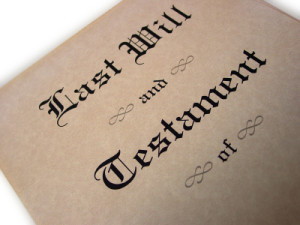If your heirs owe estate taxes to the government, they will have to find the money to pay them, probably before they can actually access their inheritance.
Q. If estate taxes are due, where will your estate get the money to pay them?
A. You should leave instructions in your will or trust authorizing the estate representative to pay the estate taxes for your heirs; you can even specify which assets should be used to pay the tax. If you do not leave such instructions they will be paid for by the estate representative from assets held in the estate.
If you do not specify which assets to liquidate to pay the estate tax, your estate representative will decide how best to pay the taxes due. When thinking about who gets what, consider the impact federal estate taxes and state inheritance taxes will have on your estate, and how this will change the value of bequests.
A Family Story: Inequitable inheritance due to estate taxes.
Vinnie had two children, Sophia and Brad. When Vinnie died, the value of his IRA was $2 million and the value of his personal residence was $2 million, a total estate of $4 million. Vinnie wanted to share his estate equally with Sophia and Brad.
Vinnie named Brad as the beneficiary of his IRA account, believing he had left Brad $2 million. Vinnie’s will named Sophia the beneficiary of the house. Vinnie assumed he had given Sophia a house worth $2 million and had treated each child equally. Vinnie’s will also included typical default instructions requesting that the estate pay any estate taxes due.
Vinnie died in 2006. The value of the estate for federal estate tax purposes was $4 million. In 2006 Vinnie’s personal federal tax exemption allowance was $2 million, leaving a taxable estate of $2 million. The estate tax due was $780,800.
Because the IRA had a named beneficiary, the IRA was not subject to probate. Brad automatically inherited the funds in the IRA account, a total of $2 million. The house Sophia inherited was subject to probate. Sophia, the executor, had to hire a lawyer and open a probate case. Sophia could not sell the house until the court was satisfied that estate taxes had been paid. Sophia had to sell the house in order to pay the estate taxes due. Sophia then had to pay $780,800 in estate taxes, plus probate court and legal fees of $35,000. Sophia eventually inherited $1,184,000. Almost half of what Brad inherited.
When determining who will inherit what, be sure to consider the impact of estate taxes and inheritance taxes on the value of the inheritance.
 That’s the percent of Americans who do not have a will, according to a Google Consumer survey by USLegalWills.com.
That’s the percent of Americans who do not have a will, according to a Google Consumer survey by USLegalWills.com.